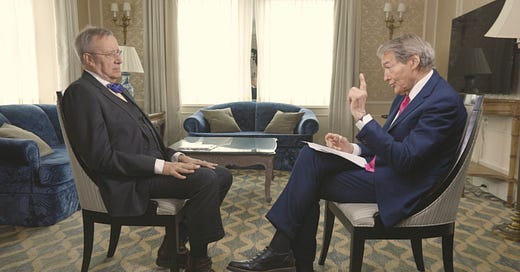Toomas Hendrik Ilves has standing to evaluate Russian, more specifically Vladimir Putin’s horrific military atrocities against the people of Ukraine. He was president of Estonia from 2006-2016, as well as a former diplomat and foreign minister and frequently participated in international conferences that discuss such matters. He spoke with me about them in an interview in New York City on May 8, 2022.
For the full conversation with Ilves, visit charlierose.com.
Russia and China
Former President Ilves is not the only smart foreign policy observer watching the events in Ukraine, searching for a guide to the future. One of them is the Director of the CIA, and former Ambassador to Russia, William Burns.
At the recent FT Weekend Festival in Washington, DC, Burns said the Chinese leader, Xi Jinping, was “unsettled by the reputational damage that has come to China with the brutishness of Russia’s aggression against Ukrainians.” According a Financial Times report on the event, written by Edward Luce, Burns called China the biggest threat and the main adversary of the United States. However, the CIA head said, Russia had to be watched because declining powers can be “disruptive.” And Russia, along with the United States, controls a huge percentage of the world’s nuclear weapons.
“I had dealt with and watched President Putin for many years and what I’ve seen, especially over the past decade, is him in a way stewing in a very combustible combination of grievance and ambition and insecurity [that] are all kind of wrapped together,” said Burns. “His risk appetite has grown over the years as his grip on power has tightened and also as his circle of advisers has narrowed.”
Many have already begun to think about what happens after the war and the implications for peace and security, what Robert Kagan calls “a never ending power struggle.”
Foreign Affairs Magazine, published by the Council on Foreign Relations, has assembled a distinguished group to explore why we are where we are and where we may be going. To read the issue, go here.
As is so often in history, the answer depends on how well you know the player and in this case, it comes down to the risk appetite of Vladimir Putin.





